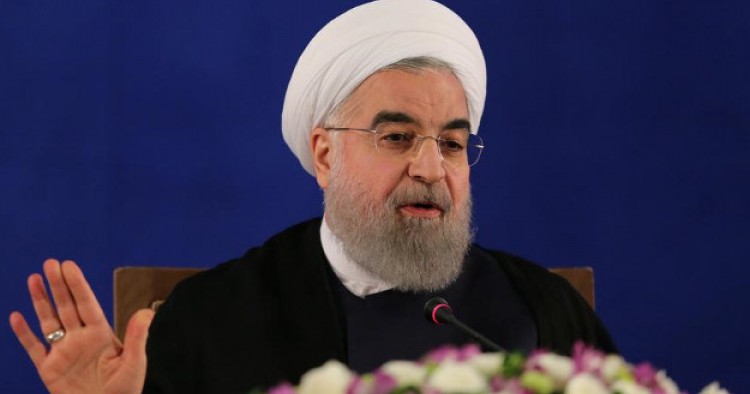In contrast to bellicose statements from Tehran in recent days, Iranian President Hassan Rouhani said today that Tehran would remain in the 2015 nuclear accord, even if the Trump administration abandoned it. But he said Tehran would stick to the deal only if other signatories of the deal assure Tehran that the Islamic Republic will continue to benefit from the Joint Comprehensive Plan of Action. “Either non-American parties will guarantee what we want from JCPOA, or if we see that what we seek in JCPOA is not assured, we will pursue our own path and plan,” he told a gathering in northeastern Khorasan Province. “The government’s objective regarding the JCPOA is to address cruel acts such as sanctions. The American government’s primary aim is to restrict Iran’s independence, power and regional influence,” he added. The Iranian president reiterated that Tehran would not negotiate with Western powers over the country’s missile program or regional posture.
Comment: Rouhani’s remarks on Tehran’s response to a potential US withdrawal from the Iran deal was starkly different from the latest statements by other Iranian leaders regarding Trump’s potential decision to scrap the Iran deal. Ali Shamkhani, a top advisor to Supreme Leader Ali Khamenei and secretary of Iran’s Supreme National Security Council, said last week that Tehran would take drastic measures if Washington cancels the deal, including leaving the Treaty on the Non-Proliferation of Nuclear Weapons (NPT).
For Rouhani, the survival of the nuclear accord defines his presidential legacy and determines his future political ambitions, including his potential bid to succeed Khamenei as Iran’s next supreme leader. The collapse of the deal would weaken his administration and embolden his hardline critics – both conservative politicians and Revolutionary Guards leaders – who opposed the nuclear deal at the first place. Therefore, if Rouhani tries to keep Iran within the deal with Khamenei’s conditional consent, he will come under tremendous pressure from the deal’s critics.
Furthermore, the Rouhani government also seeks drive a wedge between the United States and European powers to “isolate” Washington. Rouhani hopes that European countries oppose Washington unilateralism on the nuclear issue and continue to improve trade and economic ties with Tehran.
President Donald Trump said today that he would announce tomorrow his decision on whether the United States will remain a party to the nuclear accord. While the three European signatories of the deal – Germany, Britain and Britain – share Washington’s concerns about Iran’s ballistic missile program and destabilizing role in the region, they want the Trump administration to deal with those issues separately, without undermining the Iran deal. China and Russia, the other two signatories of the agreement, have also said they would not side with Washington in undercutting the Iran nuclear deal.
The Middle East Institute (MEI) is an independent, non-partisan, non-for-profit, educational organization. It does not engage in advocacy and its scholars’ opinions are their own. MEI welcomes financial donations, but retains sole editorial control over its work and its publications reflect only the authors’ views. For a listing of MEI donors, please click here.












